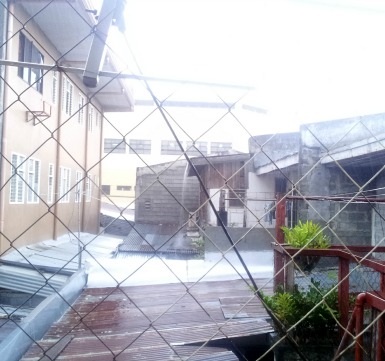by Jomvie
(Francis’ Full-Time VA)

This is an audio recording of my thoughts regarding typhoons here in the Philippines. I find this topic relevant for employers outside of the country and never have been in this part of Southeast Asia. I hope this article will give an idea about the geographic attributes and weather conditions in the Philippines.
I just want to start by describing that this kind of natural occurrence is common here in our country.
The Philippines is hit by an average of 15-20 typhoons per year. And people, especially from the northern parts like the Luzon area as well as in the middle part, the Visayas area, are practically expecting typhoons to hit their area any time during the months of June to February.
Luckily, I live in the southern part, in the southern island of Mindanao wherein our place is rarely a landing point of typhoons.
In the last couple of years, I think, there were just a couple of typhoons that hit our area, but still it was considered to be a rare event here.
Because basically, when typhoons start in the Pacific ocean, they usually hit our country in the north-eastern parts of Mindanao, which is about 10 hours away from where I live; and it goes through the Visayas area and then to the Luzon area – where it also will be exiting the country going to Taiwan and the eastern part of China.
Now, going back to the experience of having such natural events here in our country, typhoons (particularly), I would say—in describing a typhoon you can imagine a really, really bad weather with strong winds which is mostly accompanied by heavy rains.
So, basically, when the typhoon hits inland, it is pretty much sure to say that a large area would be destroyed or devastated and it is expected to have some casualties.
Considering our country is an archipelago and we are pretty much surrounded with bodies of water; like the majority of areas in our country. These bodies of water could get elevated whenever a typhoon hits and strong winds are extremely strong where homes, buildings, and even natural structures could be destroyed causing landslides and widespread flooding.
A certain percentage of the population will surely be affected whenever a typhoon enters the country’s Area of Responsibility. Here in the Philippines, we are practically prepared and expecting that kind of natural disasters will hit our country anytime. Nevertheless, casualties keep on coming whenever typhoons hit our country.
Comments for Typhoons—A Part Of Life for Virtual Assistants from the Philippines
| Aug 15, 2014 | They don’t know or they don’t care Some employers can’t seem to empathize well with this. When a typhoon hits not only do we lose power and Internet connection, we lose water supply too. |
| Aug 15, 2014 | I’d bet most employers don’t know Hey Lanber, thanks for leaving your comment!I personally don’t believe employers consciously choose to ignore the issues typhoons definitively cause for people in the Philippines, namely the many virtual assistants that work there.But I do believe every employer should inform themselves stronger about the backgrounds from their VAs, especially if they work together long term. If you expect loyalty and the going-beyond-the-expected attitude that makes working with the best VAs so magical – then it’s only fair that an employer has an interest on the conditions of living of the VA in return. However, I didn’t read much articles online about this topic. Even after hiring many people from all over the world, there is little amount of – prominently – written and promoted materials of “looking behind the scenes”. That’s why I try to let my assistants “speak their mind” on my website as often as they like to. By mastering building effective working relationships with your VA that go beyond just calculating your return of interest, you can get even better results as an employer. To all Virtual Assistants from the Philippines who happen to read this: Talk about your situation to your employer. Ideally, before an issue comes up (else the employer cannot be sure if the story is true, unfortunately). And be sure to join in the comments here to tell every reader (future employers or fellow assistants) how the reality with typhoons look like for you, your work life and your living conditions. |

Leave a Reply